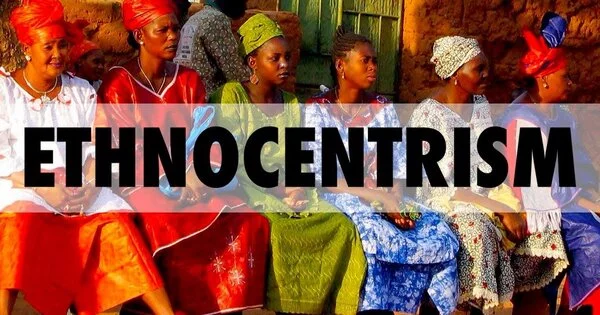Ethnocentrism is a sociological and anthropological concept that refers to individuals or organizations’ predisposition to evaluate other cultures, beliefs, and practices based on the standards and values of their own culture. It entails considering one’s own culture to be better or the “right” way to conduct things, while judging other cultures to be inferior or “wrong.”
Because this judgment is frequently negative, some people use the term to refer to the belief that one’s culture is superior to, or more correct or normal than, all others, particularly when it comes to the distinctions that define each ethnicity’s cultural identity, such as language, behavior, customs, and religion. In common parlance, it can also refer to any culturally prejudiced assessment. Ethnocentrism can be evident, for example, in popular depictions of the Global South and the Global North.
Key points about ethnocentrism include:
- Cultural Bias: It can lead to cultural bias, as people may judge or perceive other cultures negatively or positively based on their own cultural norms and values.
- In-Group vs. Out-Group: It frequently results in people being divided into in-groups (those from one’s own culture) and out-groups (those from other cultures). Out-groups are viewed negatively, whereas in-groups are viewed positively.
- Stereotyping: It can lead to the formation and reinforcement of erroneous and harmful prejudices about other cultures.
- Cultural Relativism: Cultural relativism is an alternative viewpoint to ethnocentrism that involves attempting to understand and evaluate other civilizations within their own cultural context without imposing one’s own cultural ideals.
- Ethnocentrism in History: Ethnocentrism has played a role in hostilities, colonialism, and imperialism throughout history, where one culture tries to impose its ideals and way of life on others.
Ethnocentrism is a major issue in today’s culture since it can lead to discrimination, prejudice, and intercultural disputes. Addressing this issue requires promoting cultural variety, inclusivity, and tolerance.
In conclusion, ethnocentrism is a natural but possibly dangerous propensity to regard one’s own culture as superior. To create deeper understanding and respect among other cultures, it is critical to recognize and minimize ethnocentric tendencies.
















